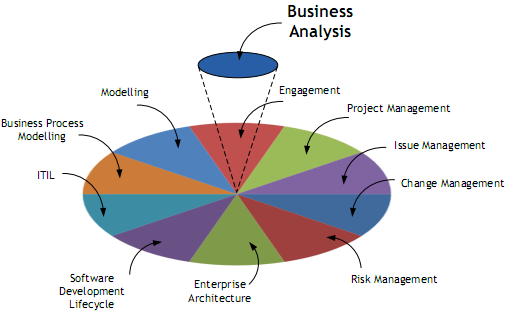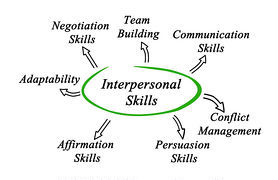Skills of Business Analyst
Have a Glance
Professional business analysts play a critical role in a companys productivity, efficiency and profitability. Important skill sets range from communication and interpersonal skills to problem-solving and critical thinking. Skills of Business Analyst can hone their skills through executive education programs and eventually earn a Certified Business Analysis Profession (CBAP), certification by the International Institute of Business Analysis. : moPharma
How to Use Skills Lists
You can use skills lists like these throughout your job search process. First, use the names of these skills as keywords when you go to write your resume. Don’t assume hiring supervisors can figure out that you have what they want.
When you find a job you want to apply for, read the job description thoroughly and research the company. This way, you will know what skills this particular business prioritizes and you can highlight these in your cover letter. Use this discussion to prepare for likely possibilities so that you can assemble your application materials quickly once you find the vacancy you’re looking for. Finally, use this discussion to plan your interview. You will probably be asked for examples of your skills, so make sure you can describe at least one instance of a time you demonstrated each skill you want to highlight. It may also help to review our lists of skills listed by job and types of skill.
Core Skills of Business Analyst
- Communication Skills
- Problem-Solving Skills
- Negotiation Skills
- Critical Thinking Skills
As an effective communicator, you must to able to facilitate work meetings, ask the right questions, and actively listen and take in new information. The ability to communicate proficiently in person, on conference calls, in meetings both digital and otherwise, and through email is essential. Business analysts spend a significant amount of time interacting with clients, users, management, and developers. A project’s success may revolve around your ability to clearly communicate things like project requirements, changes, and testing results.

Skills of Business Analyst
Every software development project you work on is, at its core, developing a solution to a problem. Business analysts work to develop a common understanding of problems, outline the parameters of the project, and determine potential solutions.
A business analyst is the intermediary among a variety of people with various types of personalities: clients, software developers, users, management, and IT. You have to be able to achieve a profitable outcome for your company while finding a solution for the client that makes them happy. Balancing both takes persuasion skills to reach a mutual solution while maintaining professional relationships.
Business analysts must analyze multiple choices before leading the team towards a solution. This requires a critical review of data, documentation, user input surveys, and workflow. They ask probing questions until every issue is evaluated in its entirety and fully understood before a course of action can be determined to resolve the problem.
General Skills of Business Analyst
Besides the core skills, employers will also be looking for more general skills and attributes. The following skills are specific to the business analyst role, but even as a new business analyst or someone looking to enter the profession, you’ll see it’s possible you have related transferable experience (and therefore skills) doing similar work under a different title.
- Documentation and Specification Skills
- Analysis Skills
The Business-Level, or how the business work flows operationally, often completed by analyzing the business process.
The Software-Level, or how the software system supports the business workflows, often completed through functional requirements models like use cases or user stories.
The Information-Level, or how data and information is stored and maintained by an organization, completed using a variety of data modeling techniques.
- Visual Modeling
- Facilitation and Elicitation Skills
- Business Analysis Tools
- Personal Attributes
While documentation or writing could be considered a subset of written communication, it’s really its own skill set for a BA. Here I include the ability to create clear and concise documentation (the latter becoming increasingly necessary in a lean or agile world). As a new business analyst, you may not have experience in a variety of business analyst specifications (that comes with time and a variety of project experiences) but it’s quite possible that your strong general documentation and writing skills will get you started.
And it will be easier to get into your first BA role if you can correlate your past experience in something very similar to a formal BA specification to the kinds of specifications required for any given position. And this is possible even if you’ve never worked in a formal environment.
Business analysts use a variety of techniques to analyze the problem and the solution. As a new BA, you might find that you naturally see gaps that others gloss over and identify the downstream impact of a change or new solution. As you mature as a BA, you’ll use a variety of techniques to conduct analysis and deconstruct the problem or solution.
There are 3 key levels of analysis that are important to fully understanding a problem and solution domain, when software is being implemented as part of the solution. These are:
n this skill area, we see many cases where professionals have related experience in analyzing problems using different techniques. Your experience is transferable and can be expanded by applying some of the BA techniques in your current work.
As part of learning the analysis techniques, you’ll also learn to create visual models that support your analysis, such as work-flow diagrams or wireframe prototypes. For any given analyst role, there could be specific models you need to create. As a general skill set, it’s important to be able to capture information visually – whether in a formal model or a napkin drawing.
In order to discover the information to analyze, BAs facilitate specific kinds of meetings. The most common kinds of elicitation sessions a BA facilitates are interviews and observations. In some more advanced roles, the meetings are called “JAD sessions” or “requirements workshops.” Also common are requirements review and validation sessions.Most new BAs have experience running very similar meetings or facilitating discussions that can is transferable into elicitation experience.
As a new business analyst, the ability to use basic office tools such as Word, Excel, and PowerPoint should be sufficient to get you into the profession. Also, a common visual modeling tool is Microsoft Visio. Other technical skills include the ability to use modeling tools, such as Visio or Enterprise Architect, requirements management tools, such as DOORS or Caliber, or project and defect management tools (there are really too many to list these days). It’s unlikely you’ll find these to be required skills for a large number of positions and they will be skills you learn on-the-job.And as important as it is to have specific business analyst skills, no list of BA skills would be complete without the soft skills required to be successful as a BA. Let’s discuss those next.
Sought-after personal attributes include adaptability and the ability to work in a fast-paced environment with cross-functional teams. You’ll need analytical thinking, attention to detail, and creativity. You’ll need to have strong organizational skills, the ability to multitask, and the ability to act as a strong but diplomatic leader.
Ability to Adapt and Quickly Adjust to Change
Ability to Work in Fast Paced Environment
Ability to Work with Cross-Functional Teams
Analytical
Assessment
Attention to Detail
Creativity
Creative Thinking
Critical Thinking
Defining Problems
Detail Oriented
Decision Making
Diplomatic
Innovation
Instructing
Leadership
Listening
Meeting Deadlines
Multi-Tasking
Organizational Skills
Planning
Prioritizing
Written Communication
Interpersonal/Communication Skills
You will need strong interpersonal and communication skills in order to help your team work together and in order to provide good service. These include facilitating meetings, giving presentations, conflict resolution, and the ability to both negotiate and influence others.
Building Consensus
Client Relationship Management
Collaboration
Communication
Conflict Resolution
Customer Service
Influencing Others
Interviewing
Negotiation
Teamwork
Verbal Communication
Presentation
Facilitating Meetings
Follow-Up
Navigating a Matrix Reporting Relationship
Executing Change
Computer Skills
As a business analyst, you’ll need to be able to use many types of software, from the popular Microsoft Office Suite, to less common packages, like SharePoint, Visio, and Software Design Tools. You will need to stay abreast of new developments in relevant IT as well.
Microsoft Access
Microsoft Excel
Microsoft Office
Microsoft Project
PowerPoint
SharePoint
SQL Queries
Software Design Tools
Visio
Analytical Skills
Of course, a business analyst needs analytical tools, from designing and implementing tests of processes to forecasting and gap analysis. Don’t forget research, statistical analysis, risk assessment, and financial planning, and much more.
Designing and Implementing Tests of Processes
Forecasting
Gap Analysis
Documentation
Quantitative
Reporting
Research
Risk Assessment
Statistical Analysis
Taking Initiative
Technical Integration
Validate Functionality
Problem Solving
Process Mapping
Process Modeling
Project Management
Data Review
Visualizations
Eliciting and specifying project requirements
Financial Planning
Key Soft Skills of Business Analyst
Like the core skills, you might find that you already have many of these skills in your repertoire. However, these skills are listed separately because they may not be intrinsic to the roles you’ve had in the past. You may need to actively seek out improving in these areas as you move into your first business analyst role.
- Relationship-Building Skills
- Self-Managing
- A Thick Skin
- A Paradoxical Relationship with Ambiguity
First and foremost on the list of soft skills is the ability to forge strong relationships, often called stakeholder relationships. A stakeholder is simply anyone who has something to contribute to your project and often you’ll work with many stakeholders from both the business and the technical teams.
This skill involves building trust and often means stepping into a leadership role on a project team to bridge gaps.
While BAs are not project managers, the most successful BAs manage the business analysis effort. This means that the BA is proactive and dependency-aware. It also means they manage themselves to commitments and deadlines, a skill set which can involve influence, delegation, and issue management.
BAs receive a barrage of feedback – on their documentation and proposed solutions. To succeed as a business analyst you need to be able to separate feedback on your documents and ideas from feedback on you personally.
Deep down, business analysts despise ambiguity. Ambiguities in requirements specifications lead to unexpected defects. Ambiguities in conversation leads to unnecessary conflict. At every stage of a project, you’ll find a BA clarifying and working out ambiguities.
Yet, at the beginning of a project, before the problem is fully understood and the solution is decided upon, a BA must be able to embrace the ambiguity and work effectively through ambiguity. Managing ambiguity means we embrace new information and learning as it surfaces, even if it surfaces later than we’d like.
And so we’ve reached the end of the important skills for a new business analyst. But no discussion of this topic would be complete without dealing with the 800-pound gorillas in the profession.
Specific Jobs Skills of Business Analyst
So, there are not one, or two, but THREE 800-pound gorillas in the profession? Yes there are, and they are technical skills, methodology skills, and business/industry domain expertise respectively.
So let’s look at these separate skill sets now.
- Technical Skills
- Methodology Skills
Agile Business Analysis
Six Sigma
Business Process Modeling Notation (BPMN)
Rational Unified Process
Etc.
- Industry and Domain Expertise
- One More Thing
First on the list is technical skills. What about SQL, .NET, Perl, and VBScript (just to name 4 of the potentially dozens of relevant IT skills in the job marketplace today)? While it’s important that a business analyst have a conceptual technical understanding as it helps you analyze the problem to be solved and communicate with technical stakeholders, you don’t need to be able write code or run database queries.
Unless you want to. If you want to there are plenty of hiring managers who will gladly take you on as a BA and a software developer.
We see technical skills in business analyst jobs for a variety of reasons, but most often it’s because the organization is looking for one person to fill two roles.
There goes the first 800-pound gorilla.
Onto the second.
Another way the business analyst job role can be specialized is around a specific methodology. Common examples include:
Pick just about any specific way that an organization could choose to approach change or software development, and you can find business analyst job profiles requesting BAs with this specialized skill set.
Having one or more of these skill sets in your back pocket can be an added advantage when it comes to searching for a job, and quickly getting up to speed on any specialized methodologies in place in your organization is critical for a new business analyst.
Now for the third, because what about business and industry domain expertise? Do I need to learn about the financial domain? Or insurance? Or the ins and outs of running an HR department?
How can I ever become a BA if I must learn this all first?
You don’t need to be an expert in every domain or industry.
In fact, that would be impossible.
Yes, a lot of BA jobs require special areas of expertise. If you have areas of expertise in specific domains, you can leverage your expertise in your BA career. But if you don’t have a specific expertise to leverage, you’ll just need to focus on opportunities that will value your other business analysis skills.
And with that discussion, we’ve effectively dealt with 3 800-pound gorillas. Not bad for a day’s work! But there’s one more thing I’d like you to keep in mind.
There is a big difference between business analysis and business analyst roles. This means that as a business analyst we might specialize in any number of skills. It also means that even if we’re experts in business analysis, we may not qualify for all business analyst jobs.
Even the most senior business analyst, the kind who would qualify for the CBAP based on their years of experience across multiple knowledge areas, would probably qualify for less than the 50% of the business analyst job roles available today.
They simply don’t have the required skills.
If you are making a career transition, the stakes are even higher. Don’t expect to qualify for more than 20% of business analyst job roles.
At first this might sound bleak. But let it sink in.
Doesn’t that take the pressure off just a little?
Instead of chasing around dozens of skills you aren’t even certain you’d enjoy using, you have permission to focus on the relevant BA skills you already have.
Whew.
We cover how this kind of focus can impact your job search in our business analyst job search process.
>> Get Your Quick Start to Success
Earn the respect you deserve and get the insider details on how to get into a business analyst career quickly, with our free Quick Start to Success training. You’ll learn how to avoid the most common pitfalls faced by new business analysts and the step-by-step business analysis process to create predictable, consistent project success.
+91 9820621021If you are looking to build your next (or first) mobile app and need help with one or more of these steps, you’re in luck! The moPharma Group welcomes app owners at any stage in this process. Whether you are a startup or Fortune 50 company, we have the team and knowledge needed to deliver a fantastic mobile app. Please don’t hesitate to write us today.




